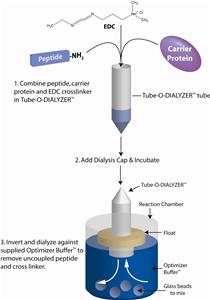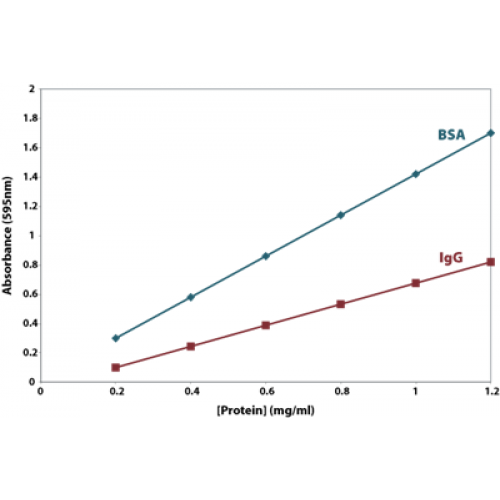Question:
There are a number of proteins that can suitably act as a carrier protein but care should be taken to ensure successful antibody production.
The Protein Man Says:
Carrier proteins play an important role in antibody production since they are the ones responsible for stimulating the immune response and the production of specific antibodies. By coupling with an immunogenic peptide derived from the protein of interest, the carrier protein-peptide molecule enters the immune pathway and undergoes a series of complex reactions to produce the specific antibody needed to fight the foreign material, in this case the carrier protein-peptide complex.
 There are a number of carrier proteins that can suitably act in this capacity but care should be taken in choosing which protein to use since the immune response and the outcome of antibody production largely depends on it.
There are a number of carrier proteins that can suitably act in this capacity but care should be taken in choosing which protein to use since the immune response and the outcome of antibody production largely depends on it.
How to Choose the Best Carrier Proteins for Antibody Production
For best results, consider using larger proteins (>60kDa) since there is a higher probability that they have all the required elements necessary for T-cell activation and possess sufficient numbers of exposed residues to facilitate peptide coupling. You also need to make sure that your chosen carrier is genetically distinct from your host to ensure better immunogenic response.
Some of the most common carrier proteins used for this purpose includes Keyhole Limpet Hemocyanin (KLH), Bovine Serum Albumin (BSA) and cationized BSA. How do these proteins differ from one another? Let's take a closer look.
Keyhole Limpet Hemocyanin (KLH). Most immunological researchers prefer KLH for its large molecular mass (4.5x105-1.3x107Da aggregates), the availability of large numbers of primary amines that can interact with cross-linkers for the coupling of peptides, and its stronger immune response. However, it can also be quite insoluble in aqueous solutions and has the tendency to precipitate due to the large number of coupling sites available.
Bovine Serum Albumin (BSA). At 67 kDa, BSA is smaller and more soluble but is considerably less immunogenic as compared to KLH. It exists as a single polypeptide with 59 lysine residues (about 30 to 35 are available for coupling). BSA gained popularity in the field since it is readily available and is considerably easy to use.
Cationized BSA (cBSA). cBSA is normally produced by substituting anionic carboxyl groups with cationic aminoethylamide groups. As a result, cBSA is capable of eliciting higher antibody response as compared to native BSA. In addition, the immune responses lasted for longer periods of time.
Summing it up, you need to take special care in choosing which carrier protein you will be using for antibody production since it can help determine the success of your study.






